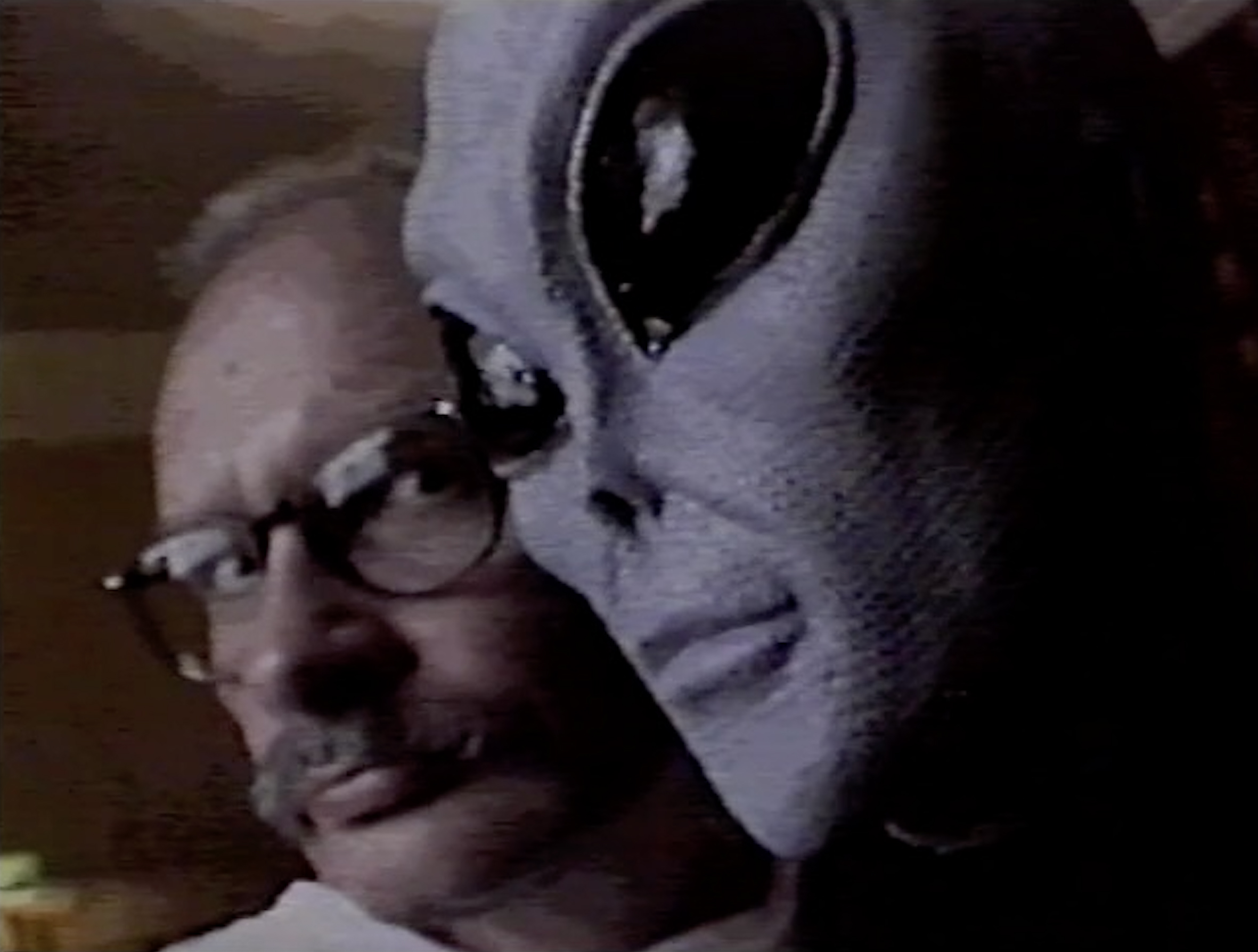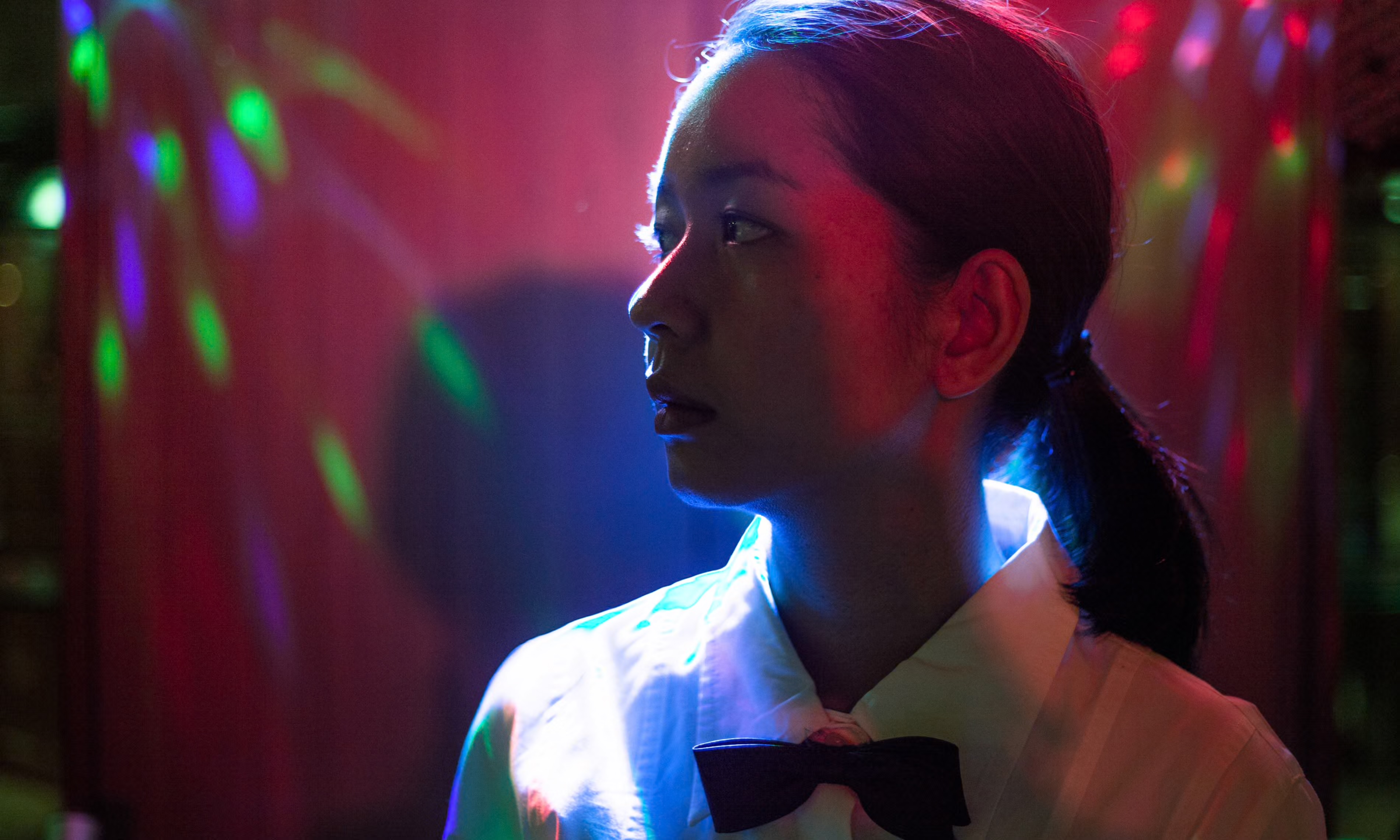Part Three | Tracking the Coded Real
Join us on e-flux Video & Film for Tracking the Coded Real, the third part of the online series True Fake: Troubling the Real in Artists’ Films programmed by Lukas Brasiskis.
Information-mining and the tracking of big data by corporations and governments have been concurrent with a significant switch to online communication. Governments and tech corporations are increasingly implementing digital identity control programs. The algorithmic codes of online presence allow them to collect, store, and use the biometrics of individuals who participate in social media. This data has also been harnessed by activists as a strategy of digital forensics. Manu Luksch’s Algo-Rhythm (2019), Louis Henderson’s Black Code/Code Noir (2015), Forensic Architecture’s and Praxis Films’ Triple-Chaser (2019), and Chris Kennedy’s Watching the Detectives (2017) expose new bio-technopolitics in the age of big data. They look at artificial intelligence and the algorithmic functioning of the media as tools to investigate cases of state violence and violations of human rights. Focusing on tracking technologies that are becoming a significant agent in post-internet control societies, these films ask: What new possibilities do digital tracking and encoding open for censorship, as well as for the creative revelation of hidden truths?
The films in Part Three | Tracking the Coded Real will screen for two weeks, from Tuesday, March 9 through Monday, March 22, 2021.
True Fake: Troubling the Real in Artists’ Films
Part Three | Tracking the Coded Real
Tuesday, March 9—Monday, March 22, 2021
Manu Luksch, Algo-Rhythm, 2019
13:51 minutes
Convenience, not choice. Efficiency, not freedom. Frictionless experience. In marketing and the retail sector, data analytics is widely used to profile and micro-target consumers and thus predict behavior. The ultimate goal, it seems, is for humans to be able to outsource all decision-making to machine intelligence (make Google do it!). But what is at stake within the political realm? Shot in Dakar with the participation of leading Senegalese musicians, poets, and graffiti artists, Algo-Rhythm probes the insidious but comprehensive threats to human rights and agency posed by the rise of the quantification and algorithmic management of daily life. Using hip-hop, drama, street art, and data-driven filmmaking, the work explores how our embrace of the convenience of machine intelligence—refracted through the slick interface of a smartphone—makes us vulnerable to manipulation by political actors. Recognizing the urgent need for a new visual language to illuminate this concern, Luksch collaborated closely with researcher Jack Wolf and mathematician-composer Mukul Patel to develop a hybrid narrative form that unites photogrammetry and volumetric filmmaking with traditional approaches. Through its auratic and poetic use of computational imaging technologies, this hip-hop musical short delves into issues around voter micro-targeting and automated propaganda,scrutinizing the limitations, errors, and abuses of algorithmic representations.
Louis Henderson, Black Code/Code Noir, 2015
10:50 minutes
Black Code/Code Noir unites temporally and geographically disparate elements into a critical reflection on two recent events: the murder of Michael Brown and that of Kajieme Powell by American police officers in 2014. Archaeologically, the film argues that behind this current situation is a sedimented history of slavery, preserved by the Black Code laws of the colonies in the early Americas. These codes have transformed into the algorithms that configure police Big Data and the necropolitical control of African-Americans today. Yet, how can we read this in the present? How can we unwrite the sorcery of this code as a hack? Through a historical détournement, the film suggests the Haitian Revolution as the first instance of a hacking of the Black Code and, perhaps, a symbol for future hope.
Forensic Architecture and Praxis Films, Triple-Chaser, 2019
10:35 minutes
When US border agents fired tear gas grenades at civilians in November 2018, photographs showed that many of those grenades were manufactured by the Safariland Group, one of the world’s major manufacturers of so-called “less-lethal munitions.” The Safariland Group is owned by Warren B. Kanders, the vice-chair of the board of trustees of the Whitney Museum of American Art. In response to their invitation to the Whitney Biennial 2019, and the controversial association of Warren B. Kanders’ with the institution, Forensic Architecture partnered with Praxis Films on a project to train “computer vision” classifiers to detect Safariland tear gas canisters among the millions of images shared online. The task of training a computer vision classifier to identify a particular object usually requires thousands of images of that object. Images of the Triple-Chaser pyrotechnic grenade, however, are relatively rare. To fill the gap, Forensic Architecture constructed a digital model of the Triple-Chaser, and located it within thousands of photorealistic “synthetic” environments, recreating the situations in which tear gas canisters are deployed and documented. In this way, “fake” images helped in the search for real ones, so that the next time Safariland munitions are used against civilians, we’ll know.
Chris Kennedy, Watching the Detectives, 2017
36:50 minutes
Immediately after the Boston Marathon bombing in April 2013, amateur detectives took to the internet chat rooms to try and find the culprits. Users on reddit, 4chan, and other gathering spots pored over photographs uploaded to the sites, looking for any detail that might point to the guilt of potential suspects. Using texts and jpegs culled from these investigations, Watching the Detectives narrates the process of crowd-sourcing culpability.
About the series
The unparalleled technological change happening over the past decades has caused a drastic shift in the perception and experience of reality. In the 1990s and early 2000s, traditional certitudes were cast into doubt indicating that belief in factual truths became just an option among a wide variety of angles and perspectives on the real. Consequently, academic discussions about the crisis of truth found resonance in the art world. A number of artists started to make works reflecting on or criticizing the “post-truth” discourse, causing what art critics and historians call the “documentary turn in contemporary art.” However, in the last ten years, when scientific facts about the irreversibility of global climate change have coincided with the unprecedented growth of science denialism, and when a reactionary rhetoric of “alternative facts” as well as the online spread of “fake news” have become a real threat to democracy, the question of the relationship between reality, mediated facts, and identity begs to be reconsidered.
Responding to the current political, technological, and environmental conditions, this series of screenings highlights twenty contemporary and historically important films and videos that examine unstable boundaries between fact and fiction, nature and artifice, objectivity and subjectivity, mediation and exposition. The title True Fake has been chosen as a statement alluding to audiovisual images perceived as fabricated or non-indexical and yet that surpass a simple true/false, documentary/fiction division.
Accompanying the series is a complementary e-flux journal reader dedicated to further inquiry around the often unstable and ambiguous relationship between reality and documentary facts. The series will also include a live discussion with some of the participating artists and other guests, date to be announced.
True Fake: Troubling the Real in Artists’ Films runs from February 9 through April 20, 2021. Screening from today and for the next two weeks are the four films in Part Two: Virtually Yours. Subsequent parts will follow bi-weekly, with new films screened every other Tuesday.
For more information, contact program@e-flux.com.









